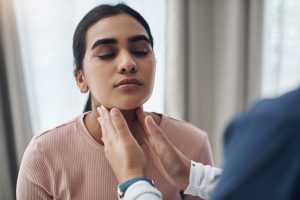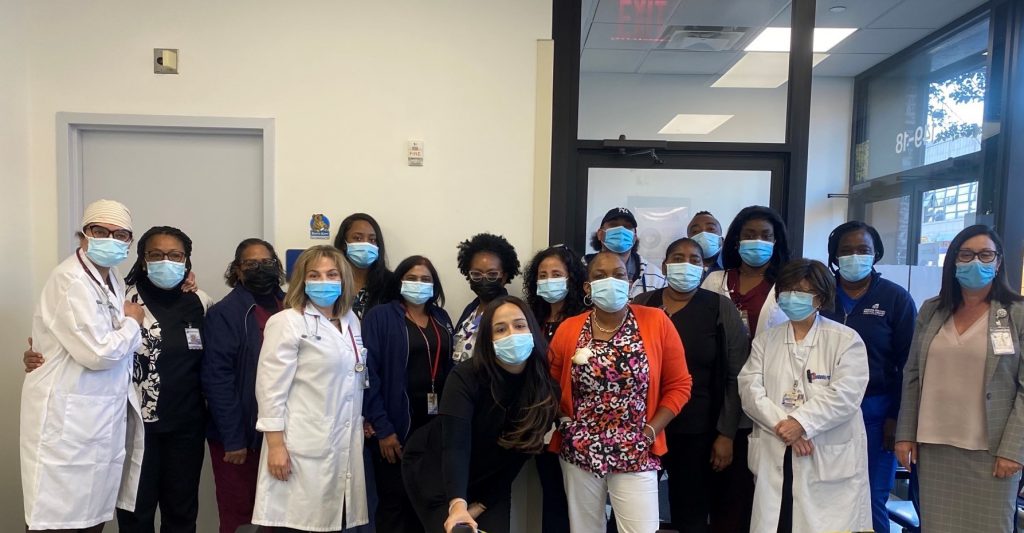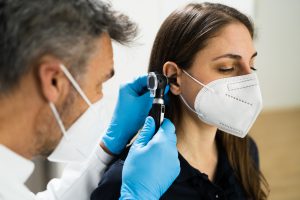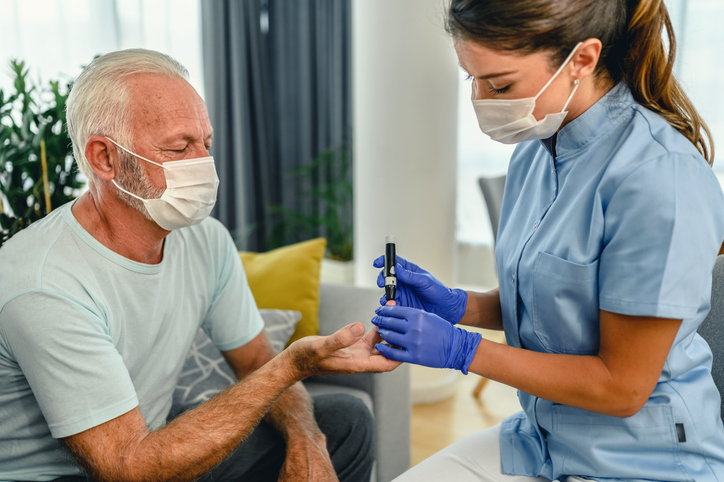 Strep pharyngitis—or strep throat is caused by a bacteria called Streptococcus pyogenes, a usual suspect when it comes to throat infections.
Strep pharyngitis—or strep throat is caused by a bacteria called Streptococcus pyogenes, a usual suspect when it comes to throat infections.
After making itself at home in your mouth and tonsils, the bacteria can cause you to have symptoms such as fever, rash, white patches in the throat, and decreased appetite.
Strep throat is often spread from someone who is already infected. It also stays on surfaces and gets inside you after you touch contaminated surfaces then touch your mouth or nose. The key to avoiding transmission is properly washing your hands.
If you think you have strep pharyngitis, you can follow up with your primary care physician for testing. Similar to how you get a COVID test (inserting a swab in your nostrils), a strep test is done by swiping your throat with a swab.
There are two main tests when it comes to testing for strep throat: the rapid antigen test or throat culture. The rapid antigen test is a simple test where the physician will take a sample from your tonsils. They will then run the sample under a special solution to detect bacteria. The other test, the throat culture, is also done with a cotton applicator. The difference is the sample is plated on a dish to see if there will be any bacterial growth—like planting a seed to see if a plant will grow. The throat culture is the gold standard test out of the two, but it takes 1-2 days at least for the results. This is why rapid testing is used more often as the results come back in only a few minutes.
Once diagnosed with strep pharyngitis, it is important to finish the antibiotic treatment your doctor prescribes. Some common antibiotics used include 10 days of amoxicillin or alternatives such as erythromycin if you are allergic to penicillin. Your doctor may also give you medicines such as acetaminophen or ibuprofen for fevers and pain. Some also find gargling with salt water or lozenges helpful.
It is important that you complete your full course of antibiotics because if left untreated, the bacteria can cause further harm. Untreated strep pharyngitis may lead to conditions such as acute rheumatic fever (ARF) and post-streptococcal glomerulonephritis. ARF can cause you to have rashes, pain in your joints, strange arm or leg muscle movements. Post-streptococcal glomerulonephritis can cause you to have dark urine or puffiness of the face, arms, or legs.
To schedule an appointment with a Family Medicine doctor at Jamaica Hospital Medical Center, please call 718-657 -7093.
All content of this newsletter is intended for general information purposes only and is not intended or implied to be a substitute for professional medical advice, diagnosis or treatment. Please consult a medical professional before adopting any of the suggestions on this page. You must never disregard professional medical advice or delay seeking medical treatment based upon any content of this newsletter. PROMPTLY CONSULT YOUR PHYSICIAN OR CALL 911 IF YOU BELIEVE YOU HAVE A MEDICAL EMERGENCY.









